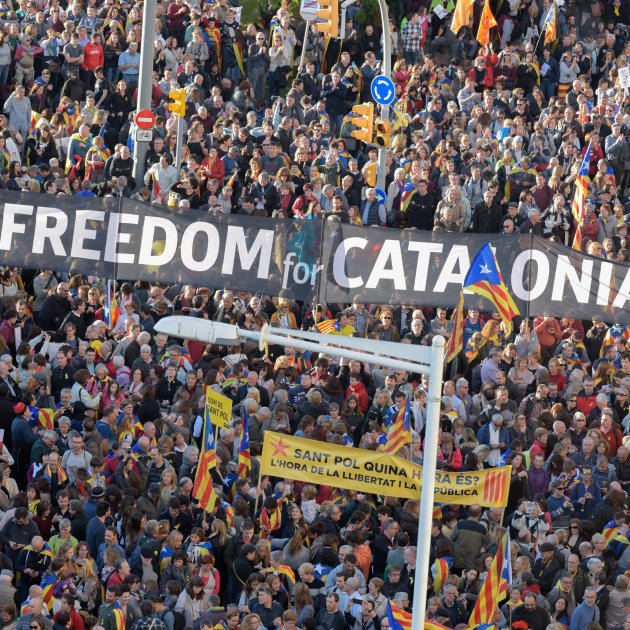Spain is accused of allegedly repeatedly violating basic human rights in Catalonia over the last year during the Catalan independence process. The accusations come in Amnesty International's annual International Report, published this Thursday, which discusses the organisation's main concerns related to each country. A large proportion of the chapter discussing the situation in Spain is dedicated to infractions relating to Catalonia and the independence movement.
Nonetheless, a topic which has drawn the NGO significant criticism within Spain in recent months remains unchanged: they don't talk of "political prisoners". The document relates the imprisonment of Jordi Sànchez and Jordi Cuixart with a single criticism of the charge of sedition being a "broadly defined offence".
In today's report, they also describe the restriction of the rights to freedom of expression and peaceful assembly after the Constitutional Court decision "aimed at preventing the referendum" as "disproportionate". They avoid, however, saying exactly who is responsible for this violation of rights, referring solely to "some authorities".
They do, however, provide specific examples of the restrictions. For example, the cite the cases of "public assemblies aimed at supporting the referendum" being prohibited in Madrid and Vitoria (Basque Country). On both occasions, the events were suspended by the courts in response to requests from the governing PP party. The other example is when the town council in Castelldefels, just south of Barcelona, prohibited all events related to the referendum in public space, whether in favour or against.
1st October: Excessive use of force
The report also gives Amnesty's perspective on the police charges on 1st October at polling stations. They say "law enforcement officials... used excessive force against peaceful protesters". Surprisingly, the report talks of the independence referendum as the "protests on 1 October".
The organisation describes the use of blank cartridges and rubber bullets during the operation and notes the case of Roger Español, a member of the public who lost vision in one eye to a police bullet.
On the subject of the courts, they focus on the "dozens of people" prosecuted for "glorification of terrorism" and "humiliation of victims" on social media, twenty of whom were convicted. Amnesty says that "in many instances" the charges were "against people who had expressed opinions that did not constitute incitement to a terrorism-related offence and fell within the permissible forms of expression under international human rights law".
Historical impunity
The report accuses Spain of "[continuing] to close investigations into crimes under international law committed during the Civil War and the Franco regime" using arguments including the "Amnesty Act and the statute of limitations". They criticise them for still not taking "measures to locate and identify the remains of victims of enforced disappearances and extrajudicial executions" and leaving families and organisations without state support. They also allege such impunity for people who committed torture.
The organisation also criticises Spain for its minimal action towards welcoming refugees and asylum seekers and its failure to meet its commitments under the EU emergency relocation scheme. They say Spain had promised to relocate 15,888 asylum-seekers but had only actually relocated 1,328 by the end of the year. Within Spain, Amnesty criticises tens of thousands of cases of forced evictions "without adequate judicial safeguards or provision of alternative accommodation by the state".
